Project deliverables and activities
Projects
1. Launch Event
The project was launched by Hon. Helena Dalli on 27th November 2018 at Auberge d’Aragon Valletta.
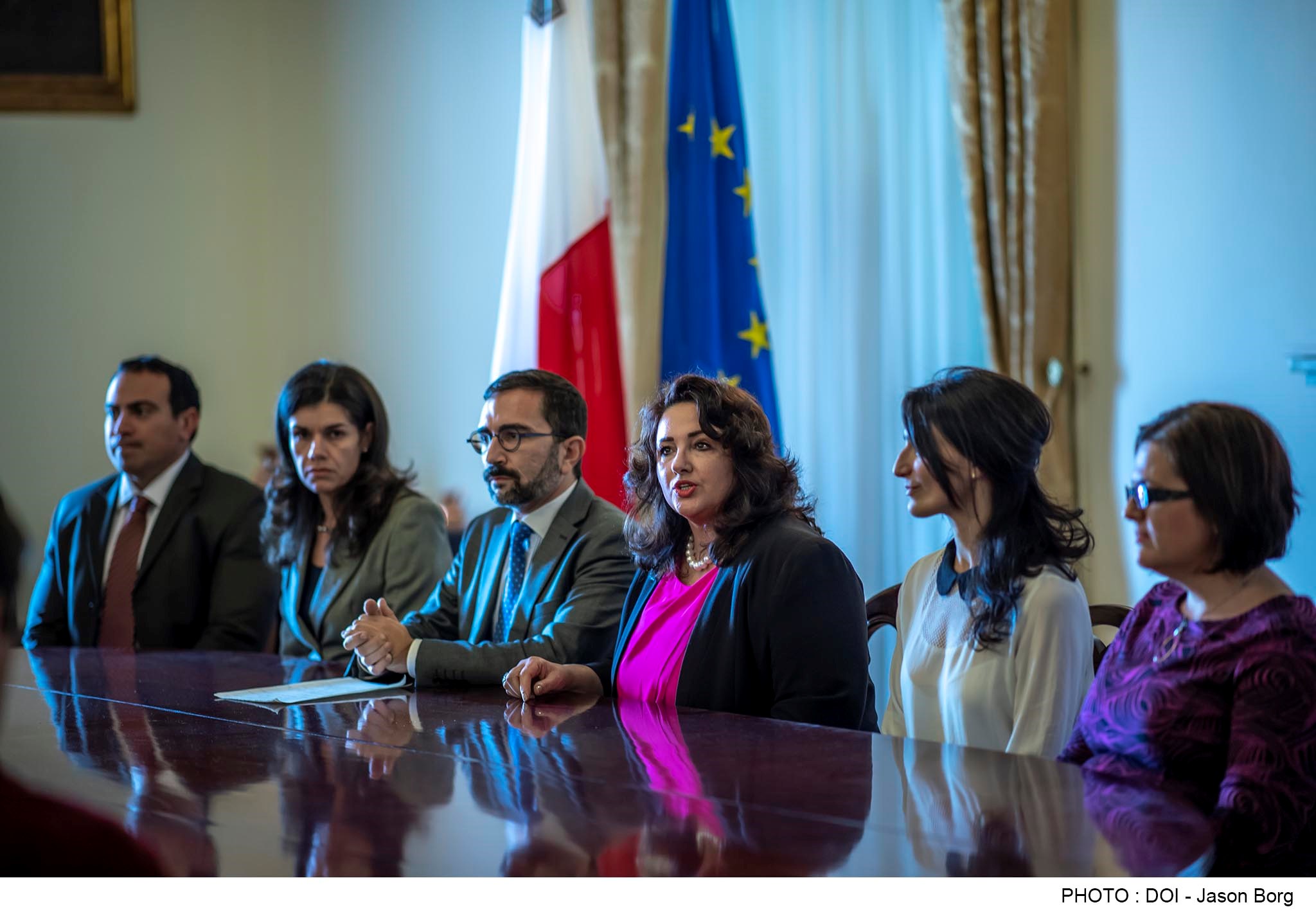
2. Victims of VAW and Target Groups
As part of this project, mentoring workshops were delivered to women victims of violence, women with disabilities, LBTI women and migrant women. The aims of these workshops were targeted to the specific needs of each group.
Female victims of violence attended workshops aimed at self-reflection and empowerment to help them break the cycle of violence. The sessions addressed independent living skills to better equip participants in finding employment and live independently and free from violence. Female victims of violence also attended one-to-one sessions with mentors to have a safe space where they may voice out any specific concerns in a confidential manner.
The other target groups attended workshops aimed at defining VAW, violence prevention, recognising signs of violence, support services available and self-defence techniques. One-to-one sessions were also made available to the participants.
All the participants received a certificate at the end of these sessions.
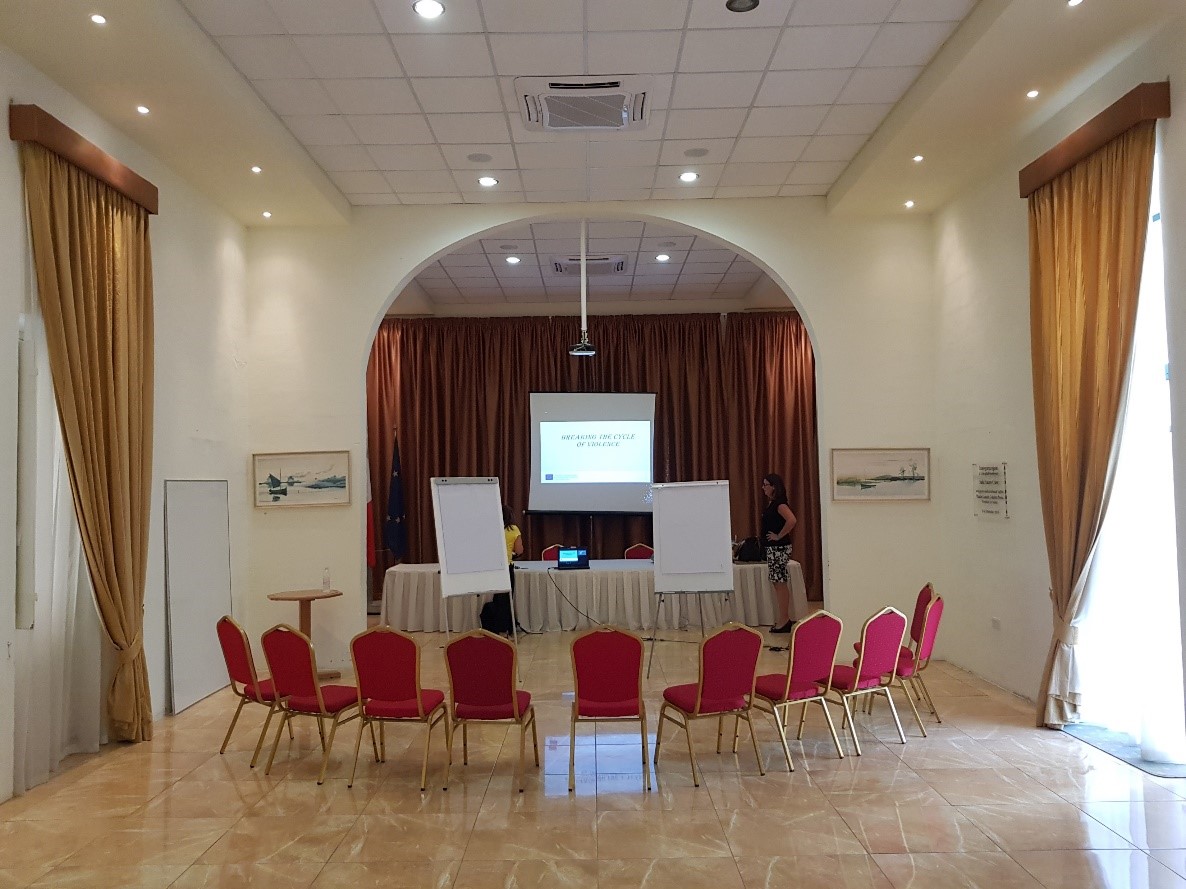
To ensure the sustainability of the project after the end date, the target group leader and mentors have worked together to create a training pack which is tailor made to each group – women with disabilities, LBTI women and migrant women. These sessions may therefore be replicated, and the content of these training packs may be adapted to meet the needs of the target group being trained. The training packs have also been certified for accessibility by the Foundation for Information Accessibility (FITA) which makes them user-friendly and accessible to every user.
3. Train-the-trainer and Youth Ambassadors Weekend
In collaboration with the Malta Girl Guides and the Scouts Association of Malta two train the trainer programmes were organised as part of the project whereby guides and leaders responsible for children and youths in their respective organisations were trained to implement the Voices against Violence Badges Curriculum – an international non-formal educational programme developed by the World Association of Girl Guides and Girl Scouts (WAGGGS). The Voices against Violence Badges Curriculum will in turn be implemented amongst approximately 600 children and young persons over five years old to enhance their awareness on gender inequality and violent relationships, and empower them to identify signs of violence and avoid violent relationships.
Following these programmes, a youth ambassadors’ weekend was organised to empower young leaders from various youth NGOs to act as ambassadors against violence.
Both deliverables involved non-formal education techniques such as workshops, brainstorming sessions, and discussions.
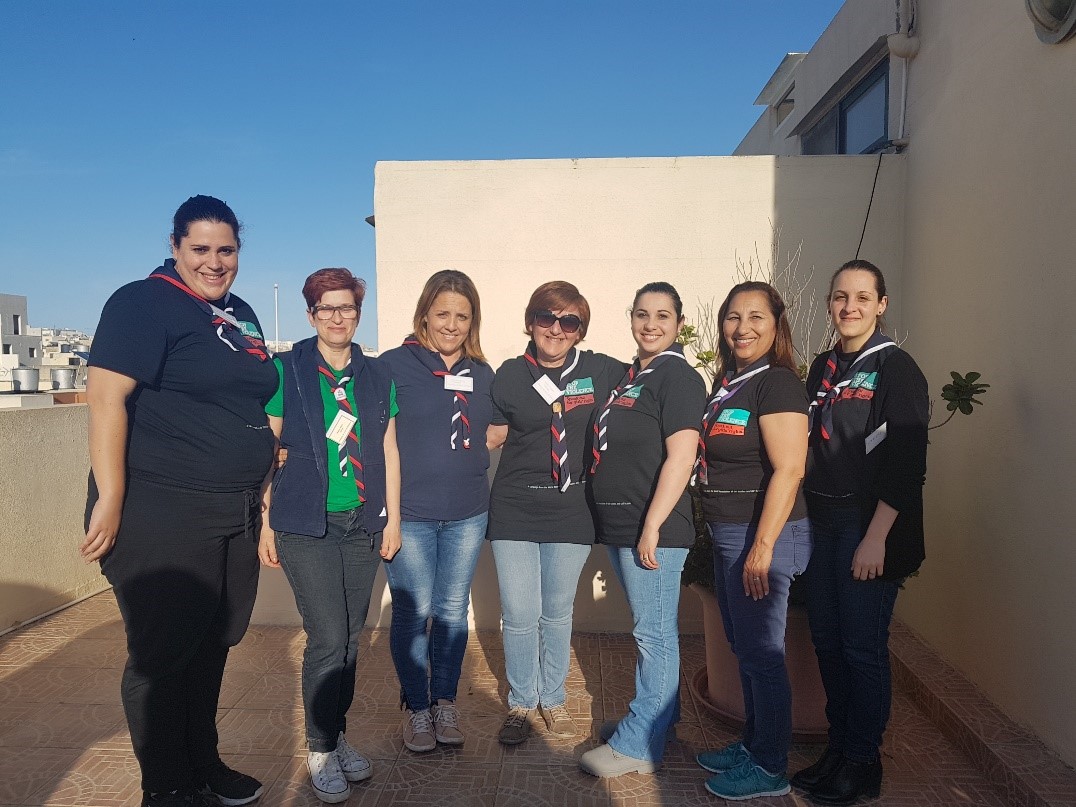
4. Information Sessions
A total of seven information sessions were held on combatting VAW. Three audience groups were chosen for this purpose – Human Resources personnel, advocates and public service employees. In order to reach the greatest number of people one session was also held in Gozo.
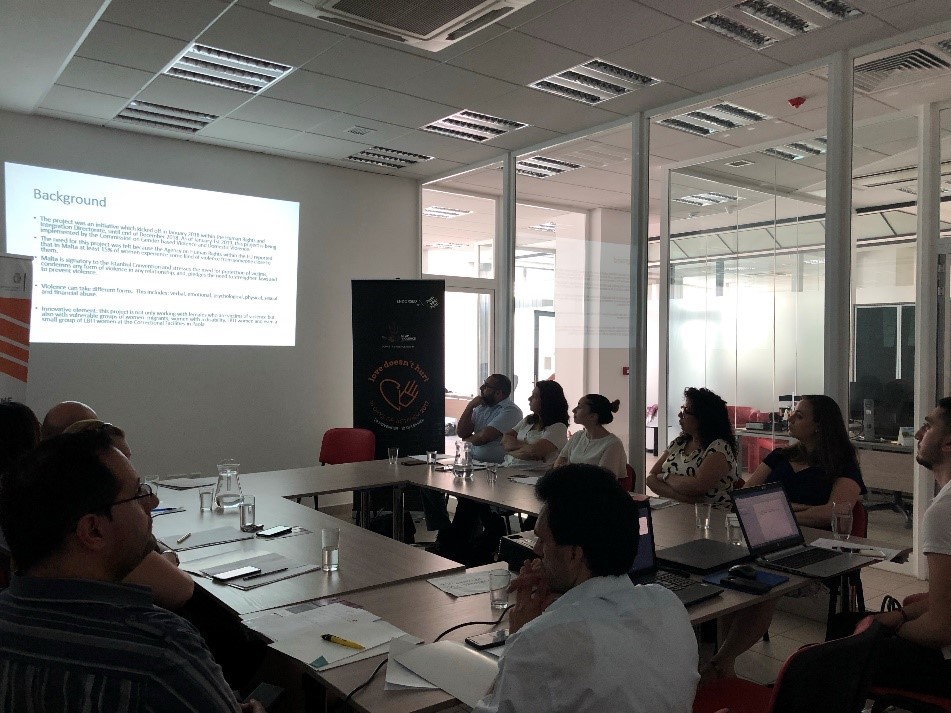
5. Telephone Surveys
A telephone survey was conducted to identify the general public’s perception towards VAW. This is linked to the awareness raising campaign, whereby telephone surveys took place both before and after in order to measure the impact of the campaign and whether there was indeed a shift in attitudes towards VAW.
6. University of Malta Research Report
This project acknowledges the need and importance of data availability to be able to analyse trends of domestic violence and violence against women. For this reason, the project has partnered with the University of Malta to conduct pre- and post- training evaluation and assess the impact of the interventions. The aim of the impact evaluation was to identify the knowledge, attitudes and behaviours towards VAW and gender equality of the target groups – women with disability, migrant women, and LBT women – and children and youths members of the Malta Girl Guides and Scouts Association that took part in the training.
The results of this research show that in general respondents became more aware of what VAW is and the services available. Some changes in attitudes and beliefs were also reported. However, the inclination to intervene became slightly less likely, possibly due to the respondents becoming more aware of the complexity of the issue.
7. ‘Be the Change’ Festival
The ‘Be the Change’ Festival was originally scheduled as a one-day campaign to advocate and raise awareness on VAW among the general public, organised by the Girl Guides and Scouts Association, where their members would present actions developed during the educational programme and engage other children and youths to advocate VAW.
Due to COVID-19 restrictions this event took place online on three separate dates. Tuesday 22nd September, Thursday 24th September, and Saturday 26th September 2020. The first two sessions were open to the public focused on awareness-raising. Some of the services like the Victims Support Unit and kellimni.com were presented.
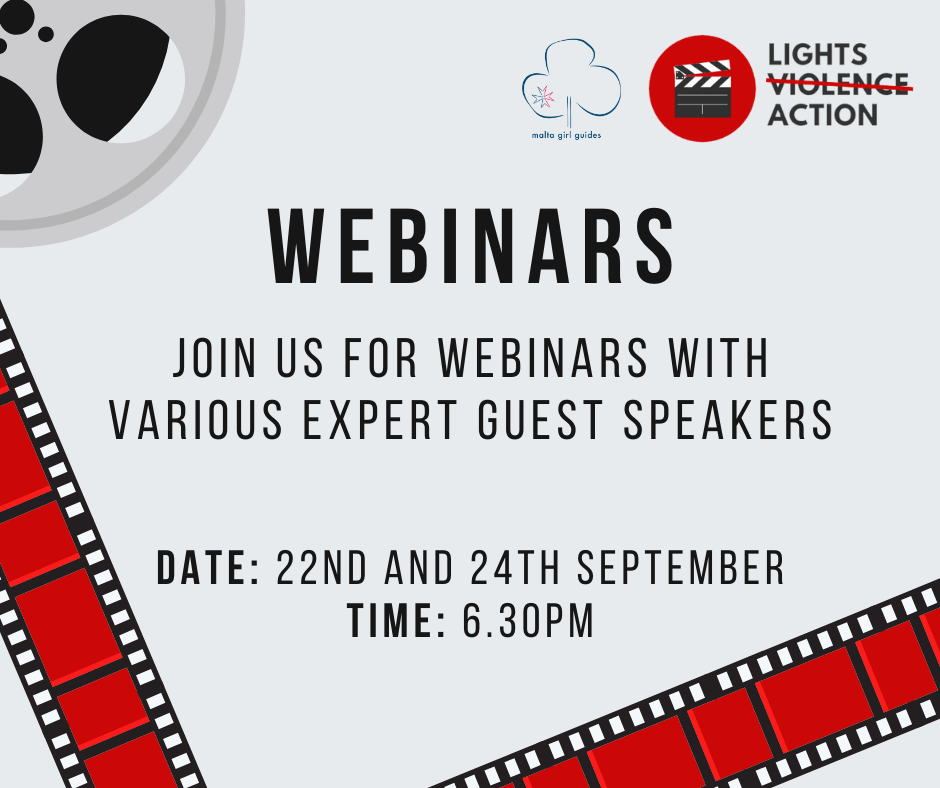
8. Final Conference
The final conference of the project took place on Friday 25th September 2020. The conference served to share the results of the project, present the results of the UOM research report, and discuss ways of future collaboration between the partners.
Due COVID-19 travel restrictions, most foreign delegates that were planned to attend the conference had to cancel their plans. As such arrangements were made by the project team to have the conference recorded. The recording, together with the conference report, were made available to all those who were unable to attend, including foreign delegates. A sign language interpreter was also engaged to make the conference accessible to persons with hearing impairment.

